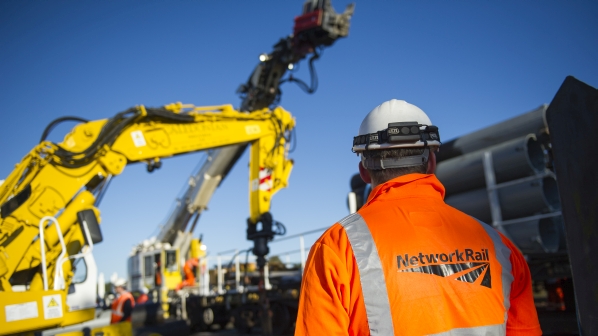The changes are part of NR’s Open for Business programme launched following the Hansford review, which looked into the barriers that prevent third parties building on, and potentially investing in, the rail network.
Changes include publishing a list of opportunities for third parties to invest in, recruiting business development teams, allowing other organisations to compete for work NR would traditionally deliver, and implementing a national framework providing consistency for teams working by the railway.
New service level commitments
NR is embedding service level commitments which it says will allow other organisations to hold it to account. NR’s asset protection and optimisation (Aspro) teams ensure any work on or near the railway is done safely and to NR’s standards. NR says the commitments will allow third-party promoters of projects to know what to expect from NR’s service and when to expect it by.

Aspro customer surveys
NR is also launching customer satisfaction surveys for investors and builders, who it says have historically viewed Aspro teams as gatekeepers and difficult to work with. The surveys will allow NR to provide a baseline and benchmark for how the Aspro teams are performing.
Clarifying the risks to an investor
NR has looked at 41 separate categories of risk that could cause problems, delays or extra cost and analysed where it can take ownership of that risk, or made it clear who will cover it. An industry risk fund has been established to enable NR to take the risk and fund liabilities when projects encounter certain unforeseen industry related problems.
Giving the industry a voice
In April last year NR asked its suppliers, contractors and stakeholders to propose more efficient ways of both enhancing and maintaining the railway which could bring value for money and innovation.
This included opening up its standards for feedback and allowing other organisations to challenge them. NR said it has received 31 detailed suggestions and believes some could potentially result in improved safety, clarity, innovation, efficiency, and cost avoidance. Repeating its call for other organisations to suggest improvements to encourage innovation while reducing both complexity and cost, NR also introduced a series of incentives to encourage challenges and hopes it will receive more.
“We’ve now completed, on time, the final commitments we made in our Open for Business response to the Hansford Review, the key enabling activities needed for us to achieve our outcomes of attracting more third-party investment into the railway, increasing competition, reducing costs and improving customer and supplier satisfaction,” says Mr David Ollerhead, NR’s Open for Business programme director.

